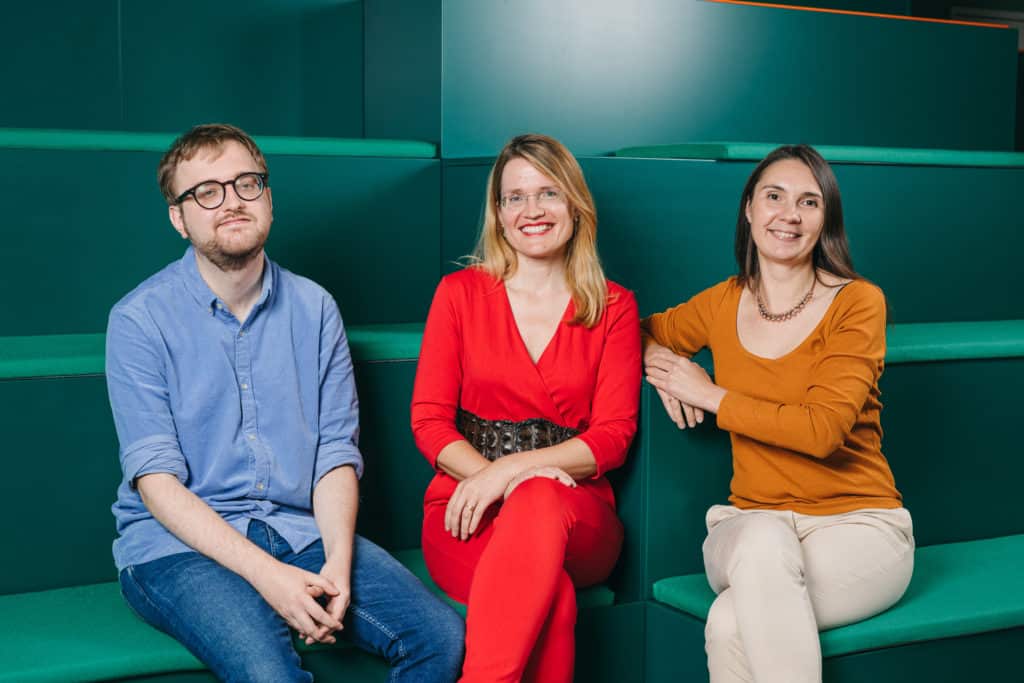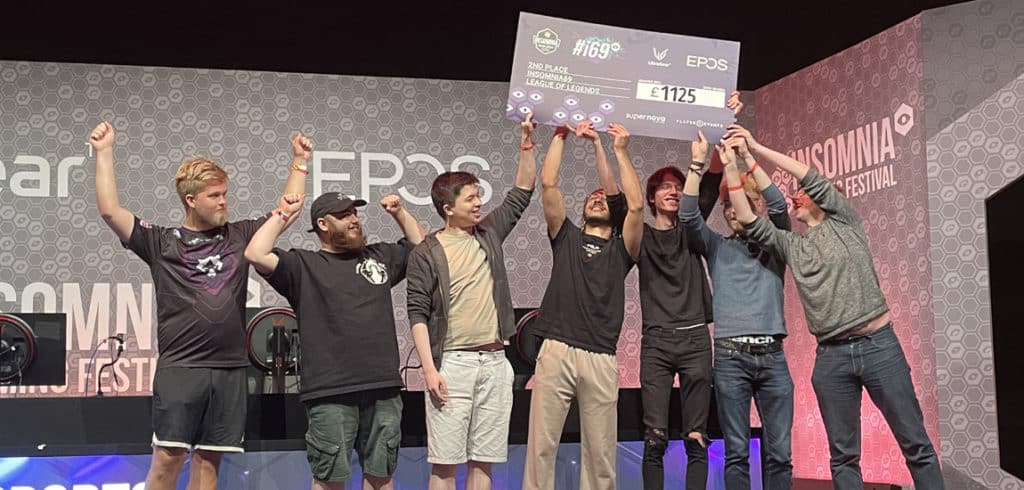UK grassroots League of Legends organisation Ruddy Esports on stage at Insomnia Gaming Festival this year
A new report from Bayes Esports has stressed the importance of smaller grassroots esports organisations to the wider industry.
It specifically looks at the German market, but the report is relevant to other territories including the UK, which is home to many a homegrown grassroots esports organisation.
With Berlin home to the League of Legends EMEA Championship (LEC), one of the most relevant leagues in LoL esports, and Cologne’s Lanxess Arena hailed as “The Cathedral of Counter-Strike”, Germany has undoubtedly become one of Europe’s most important esports markets. This development has led Bayes Esports, supplier of live esports data, to explore potential avenues for the development of esports. This deep dive is specifically placing the spotlight on the local esports amateur scene.
The Berlin-based company recently conducted a survey to find out if and how members of sports and esports clubs differ from one another and which aspects of their club membership are most important to them. The result: members of esports clubs put a much greater emphasis on being able to play in competitions but are similarly driven by the clubs’ community and companionship.
Despite the popularity of its highest level of play, grassroots-level esports clubs are still a rarity in Germany, according to the report. Whereas in other sports, such clubs are vital for the development of young talents and establishing the sport within society, “they are a very rare occurrence in esports [in Germany]”, says Bayes.
“In comparison, there are close to 400 football clubs in Berlin alone, while a mere 67 esports clubs exist in the entirety of Germany!”
“For esports to take the next step in establishing itself within a broader context in society, the development of the lower levels of play has become imperative. Without sufficient competitions that allow for teams to participate strictly for the fun of being able to compete with others, amateur-level clubs in esports will be unable to live up to the expectations of their members, and esports clubs, in general, will remain a rare sight.”
Niklas Weber, Bayes Esports
The news comes just days after Riot Games and Freaks4U downgraded the UK, Ireland, Nordics and Maltese League of Legends EMEA Regional League, the NLC.
Traditional sports and sports clubs play a significant role in German society. In total, 27m Germans are members of one of over 90,000 sports clubs in the country.
91% of those clubs claim to place great emphasis on the community and companionship in the club, whereas only 32% claim to put their focus on competing and performing in competitions.
For the vast majority of people in Germany, sports fulfill the role in society of bringing people together and establishing a common ground on which to converse (according to Breuer & Feiler 2022).
To find out whether this holds true in esports, Bayes Esports conducted a survey with members of various sports and esports clubs in Berlin. A total of 62 participants, 38 sports people and 24 esports people, answered questions regarding their perceived importance of community and competition-related aspects of their club membership. The practiced sports ranged from football and tennis to martial arts and water sports.
The results revealed that for both sports and esports people, the community and companionship in their respective clubs are most important to them. For sports and esports alike, clubs offer their members the opportunity to connect with like-minded people and build lasting friendships. In that sense, both esports and sports clubs fulfill the same role for their members.

However, the results between the two groups differed significantly regarding the importance of performance and competition-related aspects of their club membership. Whilst participating in tournaments and honing their skills in their respective sport is only important to some of the members of sports clubs surveyed, it is of the utmost importance to almost all of the members of esports clubs surveyed.
Niklas Weber, PR & content creator at Bayes Esports and conductor of the survey, noted: “For esports clubs to be able to fulfill the demands of their members, they need to be able to ensure participation in tournaments and competitions suitable for their level of play.
“For esports to take the next step in establishing itself within a broader context in society, the development of the lower levels of play has become imperative. Without sufficient competitions that allow for teams to participate strictly for the fun of being able to compete with others, amateur-level clubs in esports will be unable to live up to the expectations of their members, and esports clubs, in general, will remain a rare sight.
“If we want esports to take the next steps in its development, we need to look at our local amateur scenes just as much as we look at the highest levels of play, if not more.”

Dom is an award-winning writer and finalist of the Esports Journalist of the Year 2023 award. He has almost two decades of experience in journalism, and left Esports News UK in June 2025.
As a long-time gamer having first picked up the NES controller in the late ’80s, he has written for a range of publications including GamesTM, Nintendo Official Magazine, industry publication MCV and others. He also previously worked as head of content for the British Esports Federation.


